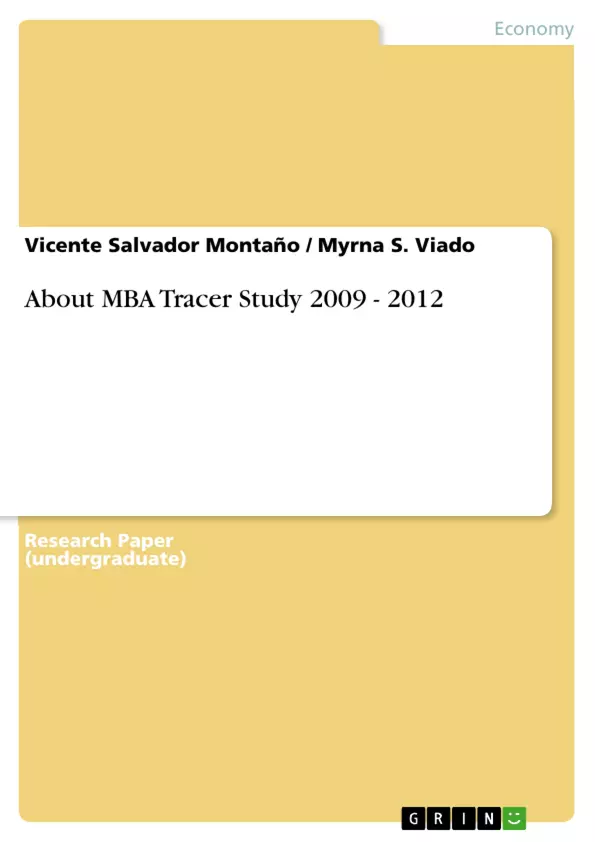This tracer study aims to determine the reasons Masters in Business Administration (MBA) graduates for Academic Year 2009 to 2012 to finish their MBA and after earning their degree the reasons to stay in their present job, accept job offers or change jobs. Using frequency the study reveals that passion for the profession, present career challenges and advancement of a career are the leading reasons to finish the MBA degree. Similarly, these are the same reasons for an MBA degree holder to stay, accept or change jobs after graduation. The result of the chi-square test of goodness of fit, (χ2, 4, N = 88) = 9.49, p<.05, shows the presence of significant differences, among MBA graduates, in their reasons to finish MBA, to stay in their present jobs, to accept job offers or to change jobs.
- Quote paper
- Vicente Salvador Montaño (Author), Myrna S. Viado (Author), 2013, About MBA Tracer Study 2009 - 2012, Munich, GRIN Verlag, https://www.grin.com/document/378103



